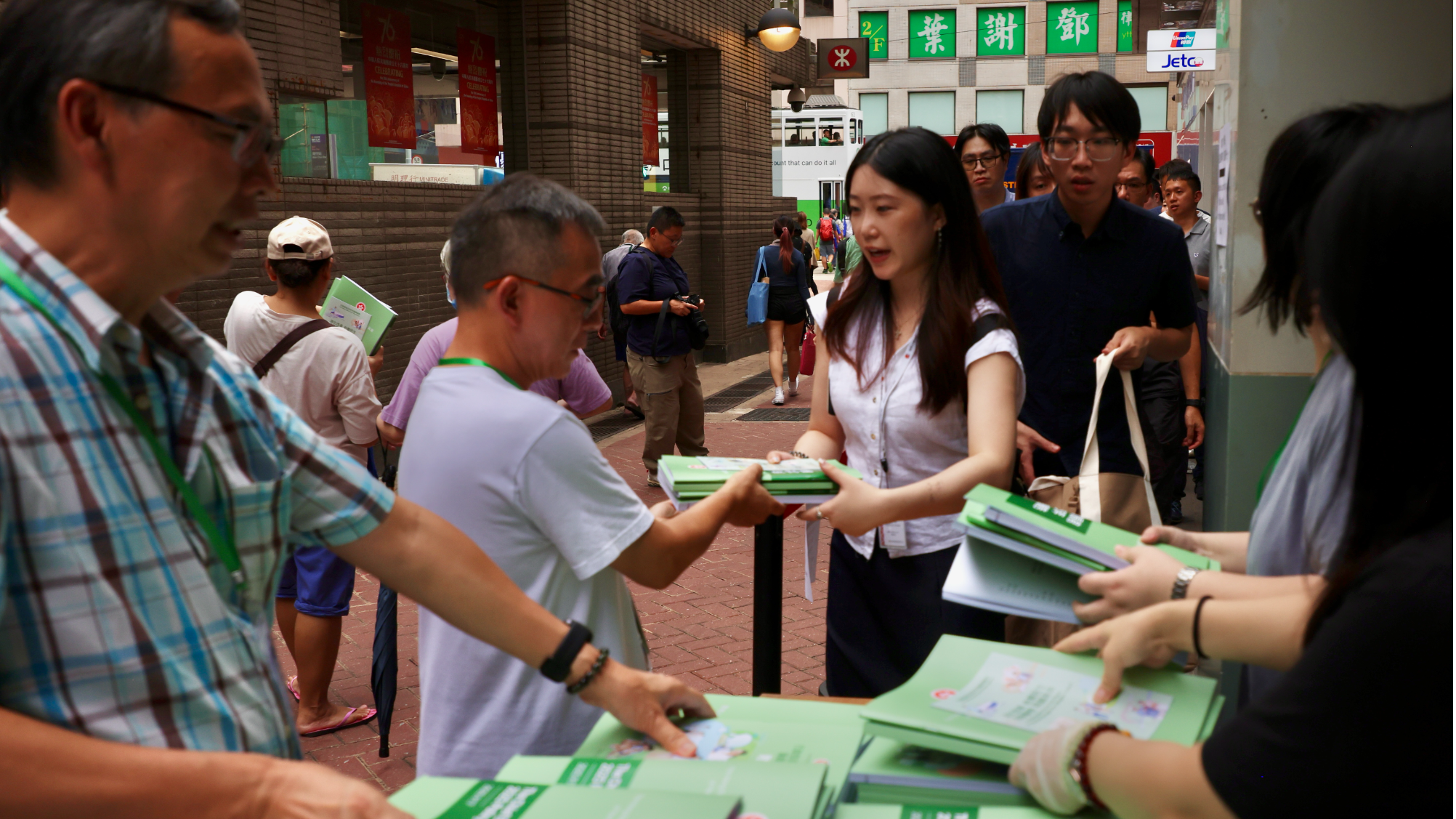
Hong Kong’s appeal as a strategic platform for Chinese mainland enterprises seeking global reach and multinationals deepening their regional presence drew renewed prominence in Chief Executive John Lee Ka-chiu’s fourth Policy Address delivered on Wednesday.
While hailing the latest policy blueprint as a step forward, experts called for a long-term, coordinated strategy to ensure that Hong Kong’s connectivity can be translated into meaningful impact.
Lee’s address outlined the establishment of a one-stop platform to support mainland companies going global, backed by the special administrative region’s overseas offices and a dedicated task force. It also includes incentives for the banking sector to set up regional headquarters and enhanced tax concessionary measures.
READ MORE: HK to raise non-local student cap, enhance education infrastructure
The Hong Kong Securities & Futures Professionals Association applauded the SAR government’s focus on supporting mainland businesses expanding overseas -- through stronger financial, professional and logistical support -- as a “pragmatic approach”.
With potentially huge opportunities in the Guangdong-Hong Kong-Macao Greater Bay Area (GBA) and under the Belt and Road Initiative (BRI) up for grabs, the association said the HKSAR’s connectivity can facilitate cross-border capital flows and financial innovation, but “this must be underpinned by robust regulation, risk management and talent development”.
Ryan Ip Man-ki, vice-president and executive director of the Public Policy Institute at Our Hong Kong Foundation, called for long-term policy consistency and inter-agency synergy.
Noting Hong Kong’s plan to expand its network of Economic and Trade Offices in Kuala Lumpur, Latin America and Central Asia, he said there has to be a strategic review of the SAR’s overseas office footprint and better integration of resources to maximize impact, especially in regions with closer ties to Hong Kong, such as the Association of Southeast Asian Nations (ASEAN) and the Gulf countries, where deeper engagement could yield significant returns.
Riding high on the city’s entrenched status as a super-connector, Ip underscored the efforts to deepen collaboration with Shenzhen’s Qianhai in commodity markets. “This could consolidate the Greater Bay Area’s pricing power in strategic resources, such as soybeans, while leveraging Hong Kong’s geographic and financial strengths to expand gold trading,” he said.
READ MORE: HKSAR set to enhance financial market infrastructure to stay ahead of the game
Ip also proposed launching offshore renminbi-denominated gold products in Belt and Road markets to strengthen China’s voice in global precious metals pricing.
As the HKSAR government sharpens its edge as a corporate treasury center, Stanley Ho, a tax partner of KPMG China, recommended a calibrated relaxation of current stringent rules on interest expense deductions, including interest paid by Hong Kong enterprises to overseas related parties, as well as by Hong Kong taxpayers to local treasury centers.
To attract more promising enterprises to set up operations in Hong Kong, Ho suggests that preferential tax rates and accelerated depreciation schemes be introduced. “Clear policy guidelines, such as minimum local hiring requirements and baseline local expenditure thresholds, would provide greater clarity for businesses and drive sustainable economic growth,” he said.
Contact the writer at sophialuo@chinadailyhk.com


